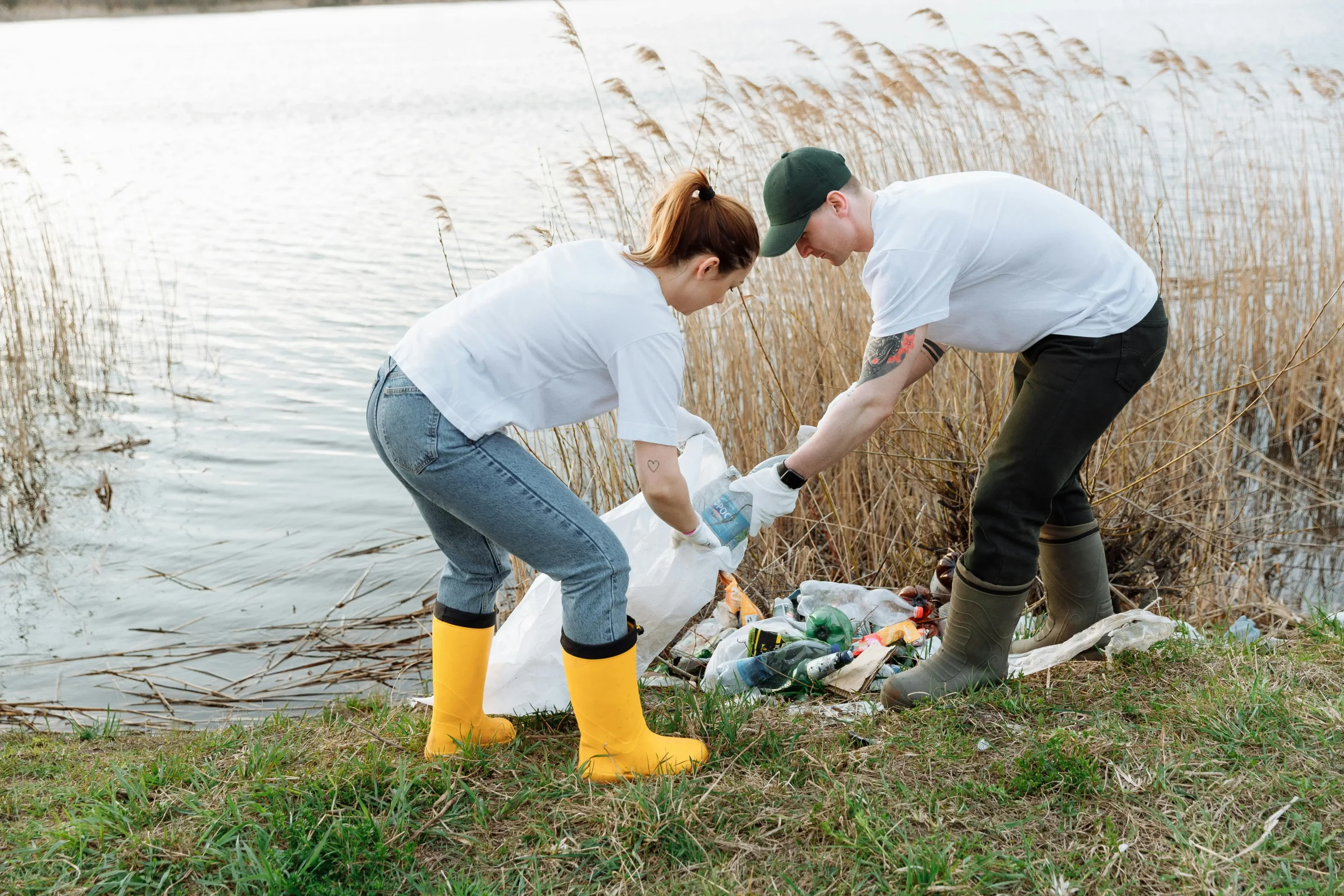When the Law Becomes Nature’s Last Defense
You wake up one morning to find your favorite local park littered with plastic waste. Nearby, a factory is dumping untreated chemicals into the river that feeds your community’s water supply. The air smells strange, and neighbors are complaining about respiratory issues. What do you do?
This is where an environmental protection lawyer comes in—a legal expert who specializes in navigating the complex world of environmental laws and regulations. These professionals are the unsung heroes fighting to protect our planet by ensuring businesses, governments, and individuals comply with environmental laws designed to safeguard ecosystems and public health.
What Are Environmental Protection Laws?
Breaking Down the Basics
Environmental protection laws are regulations designed to reduce pollution, conserve natural resources, and promote sustainable practices. These laws aim to protect ecosystems, human health, and biodiversity by setting standards for air and water quality, waste management, and land use.
Key Objectives of Environmental Laws
- Pollution Control: Limiting harmful emissions and discharges into the environment.
- Conservation: Protecting endangered species, forests, wetlands, and other vital ecosystems.
- Sustainability: Encouraging practices that meet current needs without compromising future generations.
- Public Health Protection: Reducing exposure to toxic substances like lead, asbestos, and industrial chemicals.
Real-Life Example: Sarah’s Story
Sarah lived near a factory that released untreated wastewater into a nearby stream. Concerned about the impact on wildlife and her family’s health, she consulted an environmental protection lawyer , who filed a lawsuit against the company. After months of legal battles, the factory was ordered to install proper filtration systems and pay fines for violating the Clean Water Act.
Stories like Sarah’s highlight why environmental laws aren’t just abstract rules—they’re tools for protecting our planet and communities.
World Wildlife Fund (WWF): Protecting Endangered Species .
Types of Environmental Protection Laws
Environmental laws cover a wide range of issues. Here’s an overview of the most common types:
1. Air Quality Laws
- What It Is: Regulations that limit harmful emissions from vehicles, factories, and other sources.
- Examples: The Clean Air Act in the U.S., which sets standards for pollutants like carbon monoxide and sulfur dioxide.
2. Water Quality Laws
- What It Is: Laws that protect rivers, lakes, oceans, and groundwater from contamination.
- Examples: The Clean Water Act, which regulates discharges into navigable waters.
3. Waste Management Laws
- What It Is: Regulations governing the disposal, recycling, and treatment of solid and hazardous waste.
- Examples: The Resource Conservation and Recovery Act (RCRA), which manages hazardous waste from “cradle to grave.”
4. Endangered Species Protection
- What It Is: Laws that protect threatened or endangered plants and animals.
- Examples: The Endangered Species Act, which prohibits harming protected species or their habitats.
5. Climate Change Regulations
- What It Is: Policies aimed at reducing greenhouse gas emissions and mitigating global warming.
- Examples: The Paris Agreement, which sets international targets for reducing carbon emissions.
United Nations Framework Convention on Climate Change (UNFCCC): Paris Agreement .
Intergovernmental Panel on Climate Change (IPCC): Climate Change Reports .
6. Land Use and Conservation Laws
- What It Is: Regulations that govern how land is used and preserved.
- Examples: National Park Service Organic Act, which protects federally designated wilderness areas.
How an Environmental Protection Lawyer Helps You
Navigating environmental laws can be overwhelming, especially for businesses and individuals unfamiliar with the legal framework. An environmental protection lawyer plays a vital role in ensuring compliance and advocating for sustainability. Here’s how they add value:
1. Ensuring Compliance
They review your operations to ensure adherence to federal, state, and local environmental regulations.
2. Representing Clients in Court
If you’re accused of violating environmental laws, a lawyer defends your case or negotiates settlements.
3. Advocating for Policy Changes
Environmental lawyers often work with advocacy groups to push for stronger regulations and better enforcement.
4. Handling Permitting Processes
They assist with obtaining permits for activities like construction, waste disposal, or emissions.
5. Resolving Disputes
From neighbor disputes over noise pollution to corporate lawsuits over toxic spills, a lawyer helps resolve conflicts fairly.
Steps to Comply with Environmental Regulations
If you own a business or manage a project that impacts the environment, here’s what you should do to stay compliant:
1. Understand Applicable Laws
Identify the specific regulations that apply to your industry or location, such as air quality standards or waste disposal rules.
2. Conduct Environmental Assessments
Hire experts to evaluate potential impacts on ecosystems and communities.
3. Obtain Necessary Permits
Work with an environmental protection lawyer to secure permits for activities like emissions, discharges, or land development.
4. Implement Sustainable Practices
Adopt eco-friendly technologies and processes to minimize environmental harm.
5. Monitor and Report Compliance
Regularly track your performance and submit required reports to regulatory agencies.
Common Mistakes to Avoid
Even well-meaning organizations and individuals can make costly mistakes when dealing with environmental laws. Here are some pitfalls to avoid—and how an environmental protection lawyer can help:
1. Ignoring Permit Requirements
Operating without proper permits can result in hefty fines and legal action. A lawyer ensures you have all necessary approvals.
2. Failing to Conduct Assessments
Skipping environmental impact assessments can lead to violations and reputational damage. A lawyer guides you through the process.
3. Neglecting Recordkeeping
Poor documentation can undermine compliance efforts. A lawyer advises on maintaining accurate records.
4. Underestimating Enforcement Risks
Regulatory agencies take violations seriously. A lawyer helps you mitigate risks and address issues proactively.
5. Overlooking Local Regulations
State and local laws often impose stricter requirements than federal ones. A lawyer ensures full compliance.
Real-Life Success Stories: Clients Who Made a Difference
Let’s look at two inspiring examples of how an environmental protection lawyer made a difference:
Case Study #1: Mark’s Victory
Mark owned a small manufacturing plant accused of violating air quality standards. His lawyer negotiated a settlement that included installing pollution control equipment and implementing training programs, turning his business into a model of sustainability.
National Pollution Prevention Roundtable: Pollution Prevention Resources .
Case Study #2: Emily’s Justice
Emily led a community group opposing a proposed mining project near a sensitive wetland. Her lawyer filed a lawsuit under the Clean Water Act, halting the project and preserving the ecosystem.
These stories demonstrate the transformative impact of having a skilled advocate by your side.
FAQs About Environmental Protection Lawyers
- What does an environmental protection lawyer do?
They ensure compliance with environmental laws, represent clients in court, and advocate for sustainable practices. - How much does an environmental protection lawyer cost?
Fees vary based on complexity, but many offer flat-rate packages for specific services. - Can I handle environmental compliance on my own?
While possible, hiring an environmental protection lawyer reduces risks and ensures accuracy. - What happens if I violate environmental laws?
Penalties include fines, operational shutdowns, and even criminal charges in severe cases. - What should I bring to my first meeting with a lawyer?
Bring relevant permits, operational details, and any correspondence with regulators. - Will an environmental protection lawyer help me appeal fines?
Yes, they negotiate reduced penalties or challenge unjust fines. - Can a lawyer help me go green?
Absolutely! They advise on adopting sustainable practices and securing eco-certifications. - What industries benefit most from environmental lawyers?
Manufacturing, energy, agriculture, construction, and waste management are among the top beneficiaries. - Is there a deadline for addressing environmental violations?
Yes, deadlines vary by regulation, so act quickly to avoid escalating penalties. - Can an environmental protection lawyer help with international projects?
Yes, they navigate cross-border regulations and treaties like the Paris Agreement.
Conclusion – The Law Is Our Planet’s Shield
Environmental protection isn’t just a responsibility—it’s an opportunity to create a healthier, more sustainable world. Whether you’re a business owner striving for compliance, an activist fighting for conservation, or an individual concerned about your community’s well-being, an environmental protection lawyer is your trusted ally in achieving these goals.
With their expertise, you can navigate complex regulations, avoid costly penalties, and contribute to meaningful change. Don’t let uncertainty or fear hold you back—take the first step toward protecting our planet today.
Facing an environmental legal issue? Consult an environmental protection lawyer today.
Learn more about Environmental Lawyers and their specializations : Environmental Lawyer: Your Complete Guide to Environmental Protection & Justice


One thought on “Environmental Protection Lawyer: Your Complete Guide to Environmental Laws & Regulations”